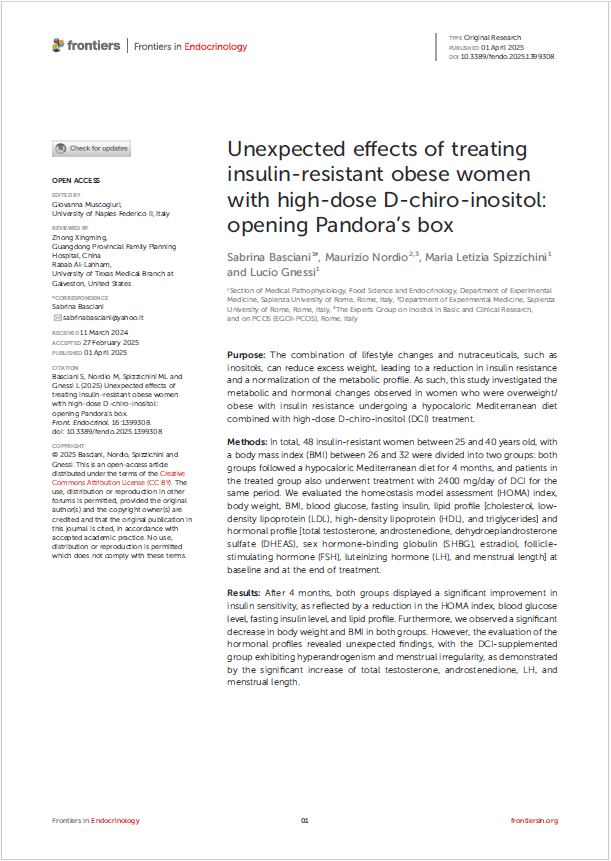Authors:
Sabrina Basciani, Maurizio Nordio, Maria Letizia Spizzichini and Lucio Gnessi
Purpose: The combination of lifestyle changes and nutraceuticals, such as inositols, can reduce excess weight, leading to a reduction in insulin resistance and a normalization of the metabolic profile. As such, this study investigated the metabolic and hormonal changes observed in women who were overweight/obese with insulin resistance undergoing a hypocaloric Mediterranean diet combined with high-dose D-chiro-inositol (DCI) treatment.
Methods: In total, 48 insulin-resistant women between 25 and 40 years old, with a body mass index (BMI) between 26 and 32 were divided into two groups: both groups followed a hypocaloric Mediterranean diet for 4 months, and patients in the treated group also underwent treatment with 2400 mg/day of DCI for the same period. We evaluated the homeostasis model assessment (HOMA) index, body weight, BMI, blood glucose, fasting insulin, lipid profile [cholesterol, low-density lipoprotein (LDL), high-density lipoprotein (HDL), and triglycerides] and hormonal profile [total testosterone, androstenedione, dehydroepiandrosterone sulfate (DHEAS), sex hormone-binding globulin (SHBG), estradiol, follicle-stimulating hormone (FSH), luteinizing hormone (LH), and menstrual length] at baseline and at the end of treatment.
Results: After 4 months, both groups displayed a significant improvement in insulin sensitivity, as reflected by a reduction in the HOMA index, blood glucose level, fasting insulin level, and lipid profile. Furthermore, we observed a significant decrease in body weight and BMI in both groups. However, the evaluation of the hormonal profiles revealed unexpected findings, with the DCI-supplemented group exhibiting hyperandrogenism and menstrual irregularity, as demonstrated by the significant increase of total testosterone, androstenedione, LH, and menstrual length.
Conclusion: The study strengthens the evidence regarding the metabolic benefits of the hypocaloric Mediterranean diet, independent from the association with DCI, on women with insulin resistance and excess weight, while also acknowledging the complex hormonal impact of high-dose DCI supplementation for medium-to-long periods.

